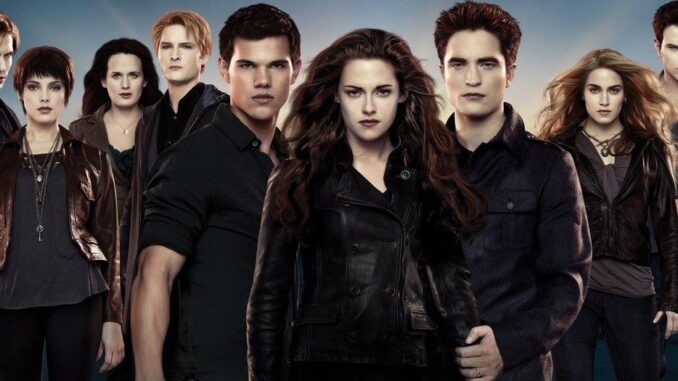
The ghost of a fairytale clings stubbornly to the ether of pop culture, a whisper that never quite fades. Even a decade after the cinematic phenomenon that spawned them, and years after their real-life romance imploded under the harsh glare of the public eye, the names Kristen Stewart and Robert Pattinson still conjure a singular question: are they back together? These persistent reunion rumors aren’t just idle gossip; they are a fascinating sociological artifact, a testament to the enduring power of constructed narratives, fan devotion, and the insatiable appetite of the media. Explaining their longevity requires peeling back layers of nostalgia, wish fulfillment, and the peculiar nature of celebrity in the digital age.
The genesis of the “Robsten” legend is, of course, Twilight. Stephenie Meyer’s vampire saga, in its cinematic incarnation, transcended mere films to become a cultural touchstone. Edward Cullen and Bella Swan were not just characters; they were archetypes of tortured, passionate, forbidden love. When Kristen Stewart and Robert Pattinson, the actors embodying these roles, revealed a real-life romance, the lines blurred into joyous, overwhelming synchronicity. Fans didn’t just ship Edward and Bella; they shipped Kristen and Robert with an intensity rarely seen. Their faces were emblazoned on every magazine cover, their romance a daily soap opera played out in paparazzi photos and speculative articles. They became the embodiment of the perfect, if angst-ridden, young Hollywood couple, living out the very fantasy they portrayed on screen.
Then came the fall. The very public scandal, the affair that shattered the seemingly perfect façade, left an indelible scar. The edifice of their fabricated perfection crumbled, and the fairytale ended not with a happily-ever-after, but a messy, public dissolution. Fans were heartbroken, betrayed even, as if their own dreams had been shattered. The breakup was definitive, painful, and widely documented. Both actors, visibly reeling, retreated from the most intense scrutiny, embarking on separate journeys of career reinvention and personal growth.
In the years since, Kristen Stewart has emerged as an acclaimed indie darling, shedding her blockbuster skin to embrace complex, often queer, roles that showcase her raw talent. She’s become a fashion icon, an authentic voice, and openly embraced her identity and relationships with women, a refreshing departure from the carefully manicured personas of Hollywood past. Robert Pattinson, too, has forged a path of artistic credibility, gravitating towards challenging, often dark, roles in arthouse films, culminating in his critically lauded portrayal of Batman. He has maintained a fiercely private life, offering rare glimpses into his personal world. Both have cultivated new circles, new loves, and new professional identities far removed from the glittering, suffocating cage of Twilight.
So why do the reunion rumors persist?
Firstly, nostalgia is a powerful drug. For many, Twilight represents a specific era of their lives – adolescence, first crushes, the thrill of a cultural phenomenon. The idea of Robsten reuniting is a way to revisit that simpler time, to recapture the innocence and excitement. It’s the collective ache for a happily-ever-after that never quite materialized in real life, an almost desperate need for the fantasy to triumph over reality.
Secondly, there’s a strong element of wish fulfillment and narrative closure. Our brains crave complete stories. The Robsten saga, in many fans’ minds, ended abruptly and tragically. A reunion would offer a redemptive arc, proving that “true love” can overcome any obstacle, a grand romantic gesture that mirrors the very tropes Twilight capitalized on. It’s the desire to see a beloved couple “fix” what was broken.
Thirdly, the media economy thrives on such narratives. A “Robsten reunion” headline is clickbait gold. Any fleeting interaction – a shared event, a mutual friend’s party, even a distant photograph – is amplified, scrutinized, and spun into a potential harbinger of reconciliation. It requires minimal effort and generates maximum engagement, feeding the perpetual rumor mill. The smallest spark becomes a raging inferno of speculation online.
Finally, and perhaps most subtly, it speaks to the enduring imprint of their characters. For a generation, Kristen is Bella, and Robert is Edward. The deeply ingrained personas from the films continue to overshadow their real-life identities, making it difficult for some to separate the actors from the characters, or their past selves from their present ones. The rumor, then, is a desperate attempt to resurrect the fictional couple through their real-life counterparts.
In essence, the “Kristen Stewart and Robert Pattinson reunion rumors” are not about current reality. They are not about secret rendezvous or rekindled flames. They are, overwhelmingly, a product of our collective memory, our longing for idealised romance, and the relentless machinery of celebrity culture. Kristen Stewart and Robert Pattinson have moved on, respectfully, successfully, and individually. Their journey since Twilight has been one of self-discovery and independent triumph. The whispers of their reunion, then, are less an explanation of their lives now, and more an illustration of our own enduring fascination with the narratives we construct, and the difficulty we often have in letting fairytales simply be, well, fairytales.
